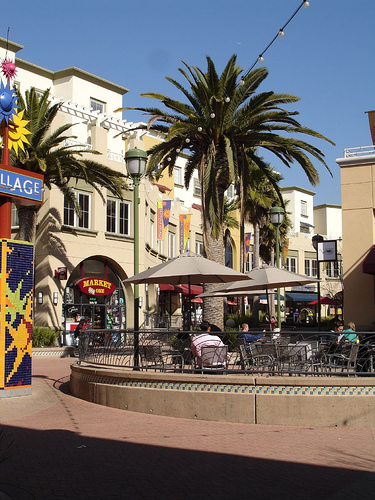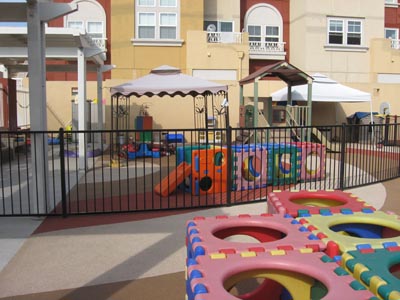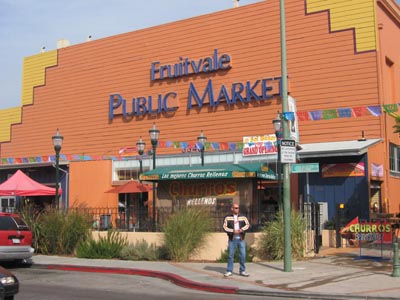Every two weeks, MPC uncovers best practices from around the world and delivers them right to your inbox in Talking Transit. This week, MPC uncovers the building blocks for a successful transit-oriented development in Oakland’s Fruitvale neighborhood.
The Fruit of Oakland: Transit Oriented Development in
Fruitvale
Only 15 miles outside of San Francisco, the
Fruitvale neighborhood in Central East Oakland is home to more than 48,000
residents living in 13,000 households. Made up largely of Latinos, Asians and
African Americans, Fruitvale is the densest and youngest neighborhood in
Oakland.
The community is adjacent to a BART train station, easily accessible by several
bus connections, and centrally located in Oakland. Today, Fruitvale is considered one of
the best examples of successful transit-oriented development that preserves the
cultural integrity of the existing community and enhances the neighborhood’s
quality of life. The community went from a neighborhood of anguish and
disrepair to a neighborhood of hope and choice.

Cafe at Fruitvale BART Station,
Photo Courtesy of Susan Decker
In the early 1990s, the neighborhood
faced a serious decline in economic, physical, and social conditions. Retail
vacancies were high, crime was rampant, and home ownership was very low. The neighborhood was unsafe and
undesirable. Because of its proximity to the train station, commuters
often drove from the outskirts of Oakland to
Fruitvale to park and take the train into Oakland
and San
Francisco. Transit officials announced plans to expand
their parking facilities to accommodate the commuters driving to the station.
During this time, Fruitvale saw a sea of concrete parking structures, increased
vehicle traffic and emissions, and little investment in its not so distant
future.
Strong community leadership and
forward visionary thinking sparked a local organization to turn the community around. A non-profit
organization known as the Unity Council identified Fruitvale’s primary assets –
its access to transit and central location in the Bay Area – and transformed the once run down
neighborhood into a successful, thriving transit hub.

Preschool in the Fruitvale
Transit Village
The development known as the
Fruitvale Transit Village created dense housing near transit with approximately
68 percent of its current housing development designated as affordable.
Traffic calming measures, landscaping, and street furniture created a more
walkable neighborhood and established a series of successful inviting public
plazas and open spaces. Anchored by a concentration of community services
and quality programming – including a public library, senior center, high
school, preschool, health care clinic, and job center – the investment in
Fruitvale’s Transit Village led to the creation of more than
400 permanent jobs on site. Public open spaces are
programmed, managed, and maintained by the Unity Council which conducts
festivals, cultural displays, and a weekly farmer’s market. To meet the needs of
commuters, parking was increased throughout Fruitvale but alongside the parking
spaces came bike racks, bike service stations, pedestrian lighting, bus
shelters, and plenty of public seating.

Public Market - Business
Incubator
The Unity Council’s model to
building successful transit oriented development is strongly based on a
community led vision and organizational commitment. Strong leadership,
support of elected and appointed officials, and sophisticated development and
financing helped get the Fruitvale Transit Village off the ground. With one of
the largest rail networks in the country, the Chicagoland area can look to
Fruitvale’s model to help transform areas near transit into thriving economic
and social centers of a community.
This article was
featured in Talking Transit, MPC's bi-weekly e-newsletter.
To receive the newsletter, visit http://www.metroplanning.org/personalize.asp.